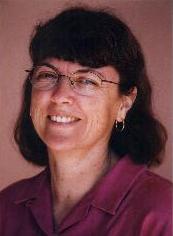Yesterday, in the bit of time I did have to work, I went off on a tangent of looking into research institutes because I realized I had no idea what it would be like to work in one. Today, overwhelmed with the amount of research I would need to do to "get it right," I balked at diving in. Everything I seemed to try just led to me needing more information, and then finding more sources of information than I could possibly digest before this book has to be turned in -- let alone written. Maybe I'm writing about the wrong thing. What do I know about research institutes? Obviously far too little...
But then I stopped and realized that while my story is set in a research institute, it's not my intent to write about life in one. I really only need a few salient details. But how do I find in the array of sources facing me just the bits I really need without having to go through them all? I can't possibly know the answer to that question, but God does. Not only that, He knows all about research institutes and what they're like and He can guide me in forming the story now, so that it takes the right shape to mesh with information He will bring me later...
So I might as well relax.
Beyond that, I also realized today that I’d let my focus slip into the wrong place. Once again, I'd gotten all caught up in my need to have pages completed, and scenes formed and set down in a timely manner, when I should be focused on all that I've been given so far. The questions that have arisen over the last few days about the Institute’s layout, its organizational structure, the weaknesses of the original scene in chapter 5, the questions as to what I should replace it with, and what direction I really want to take here... These are good things and remind me of something I read in Orson Scott Card's Character's and Viewpoint:
"... such possibilities only emerge when we demand more from the idea, when we ask more why and what result questions. If you stop with the first acceptable answer, the first 'good enough' version of the story, you lose the chance to move from shallowness to depth, from simplicity to complexity, from a merely fun story to a fun but powerful one."
He was talking specifically of the generation of a short story in a workshop format he calls "A Thousand Ideas in an Hour." I'm a long way from developing the entire story, but I think the same idea applies to the things I am developing. As I ask the questions, or note the things that are emerging as inconsistencies and start to address them, even though it's uncomfortable and unpleasant to see that the work is not as done as I'd believed it was, this process will make it better in the end. Which is exactly what I want.
Peace,
Karen

